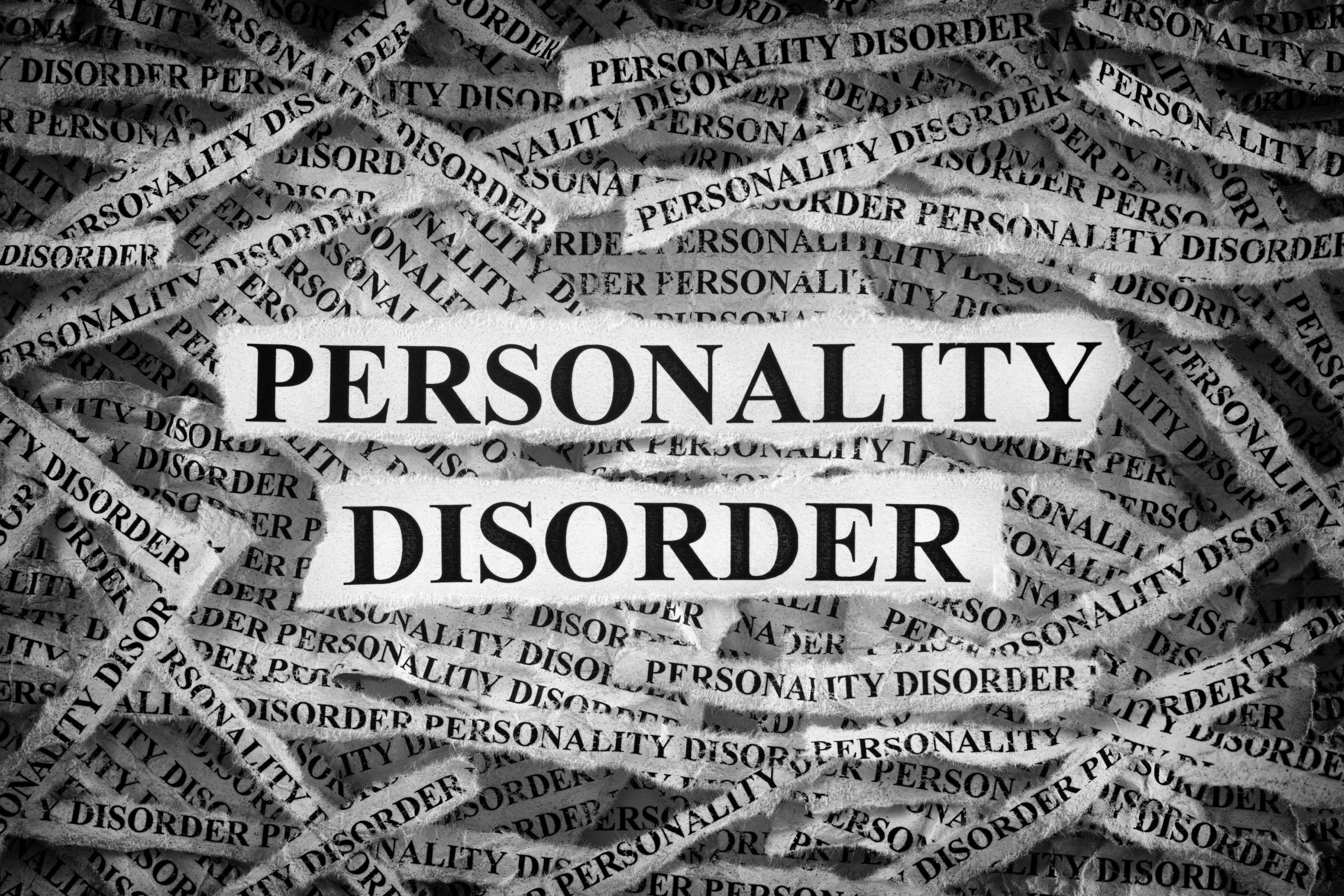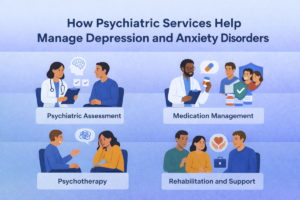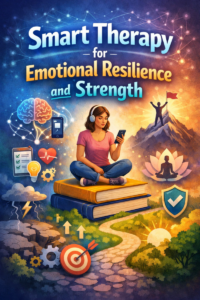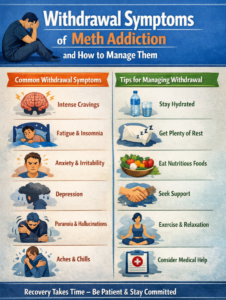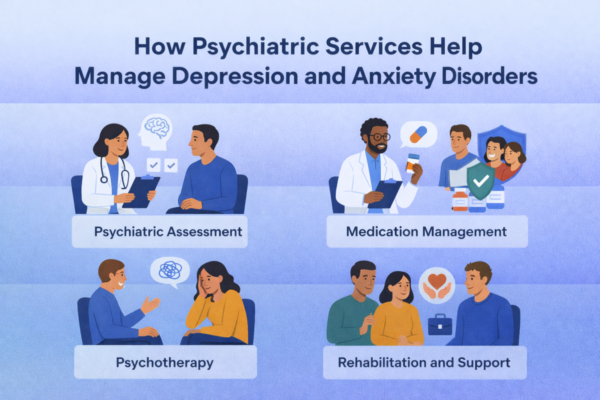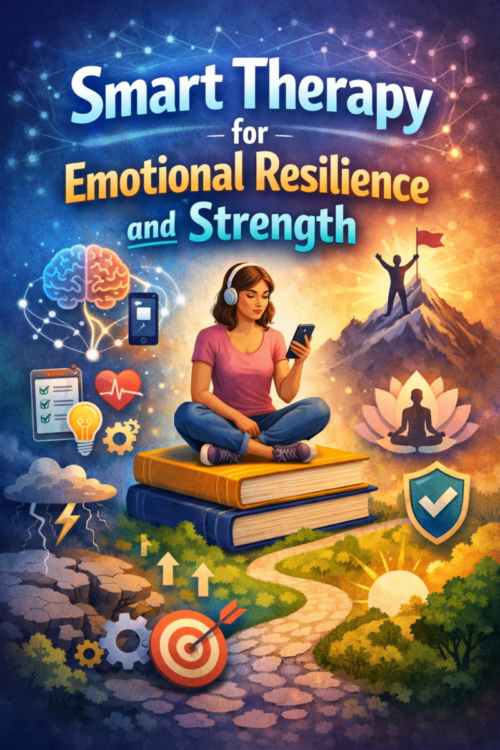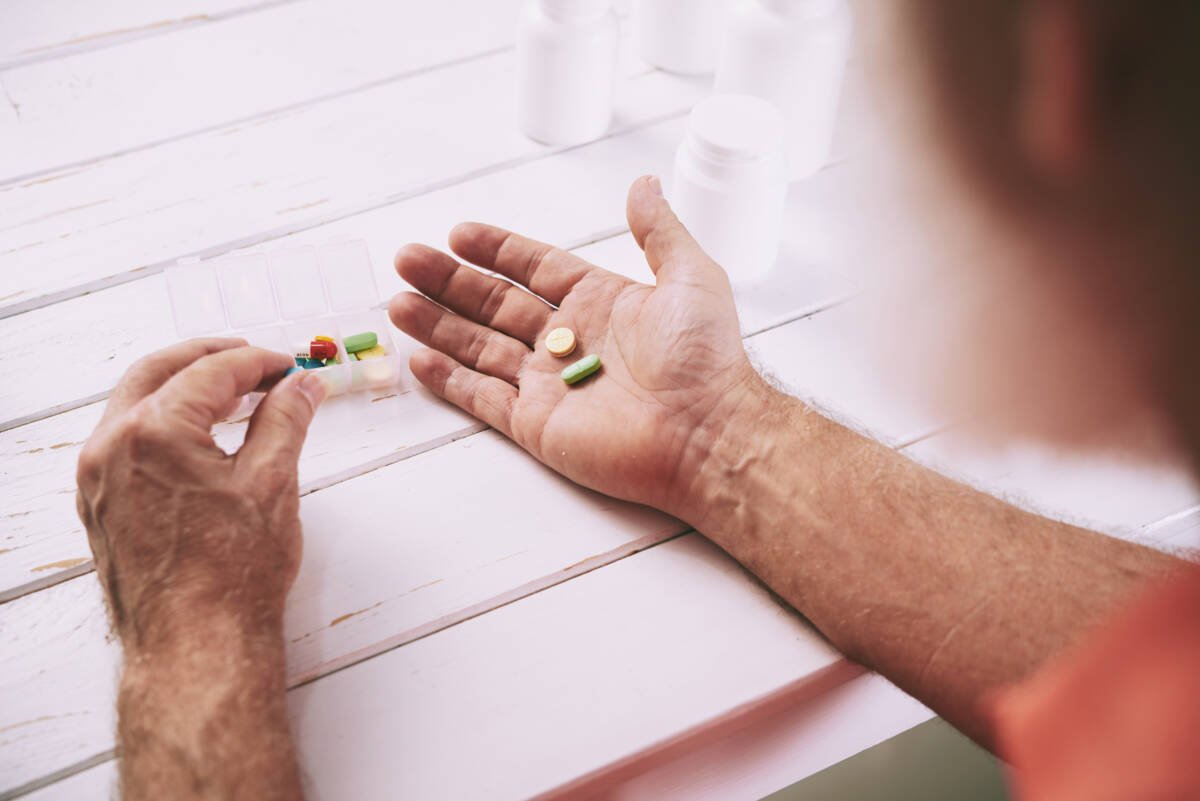Personality Disorders
Personality disorders are a group of a 10 mental health conditions that involve long-la
sting, disruptive patterns of thinking, behaviour, mood and relating to others. People with personality
disorders often don’t realize their thoughts and behaviours are problematic.
Personality disorders may cause distorted perceptions of reality, abnormal behaviours and distress across various aspects of life, including work, relationships and social functioning. Additionally, people with a personality disorder may not recognize their troubling behaviours or the negative effect they have on others.
What are the types of personality disorders?
The Diagnostic and Statistical Manual of Mental Disorders (DSM-5), which is the standard refere
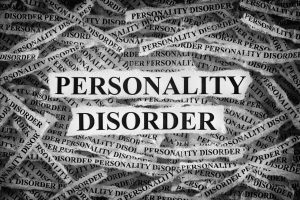
nce publication for recognized mental illnesses, organizes the 10 types of personality disorders into three main clusters (categories). Each cluster has different symptoms in common.
Cluster A personality disorders:
Cluster A personality disorders involve unusual and eccentric thinking or behaviours. These include:
Paranoid personality disorder:
The main feature of this condition is paranoia, which is a relentless mistrust and suspicion of others without adequate reason for suspicion. People with paranoid personality disorder often believe others are trying to demean, harm or threaten them.
Schizoid personality disorder:
This condition is marked by a consistent pattern of detachment from and general disinterest in interpersonal relationships. People with schizoid personality disorder have a limited range of emotions when interacting with others.
Schizotypal personality disorder:
People with this condition display a consistent pattern of intense discomfort with and limited need for close relationships. Relationships may be hindered by their distorted views of reality, superstitions and unusual behaviours.
Cluster B personality disorders:
Cluster B personality disorders involve dramatic and erratic behaviours. People with these types of conditions display intense, unstable emotions and impulsive behaviours. Cluster B personality disorders include:
Antisocial personality disorder (ASPD):
People with ASPD show a lack of respect toward others and don’t follow socially accepted norms or rules. People with ASPD may break the law or cause physical or emotional harm to others around them. They may refuse to take responsibility for their behaviours and/or display disregard for the negative consequences of their actions.
Borderline personality disorder (BPD):
This condition is marked by difficulty with emotional regulation, resulting in low self-esteem, mood swings, impulsive behaviours and subsequent relationship difficulties.
Histrionic personality disorder:
This condition is marked by intense, unstable emotions and a distorted self-image. For people with histrionic personality disorder, their self-esteem depends on the approval of others and doesn’t come from a true feeling of self-worth. They have an overwhelming desire to be noticed by others, and may display dramatic and/or inappropriate behaviours to get attention.
Narcissistic personality disorder:
This condition involves a consistent pattern of perceived superiority and grandiosity, an excessive need for praise and admiration and a lack of empathy for others. These thoughts and behaviours often stem from low self-esteem and a lack of self-confidence.
Cluster C personality disorders:
Cluster C personality disorders involve severe anxiety and fear. They include:
Avoidant personality disorder:
People with this condition have chronic feelings of inadequacy and are highly sensitive to being negatively judged by others. Though they would like to interact with others, they tend to avoid social interaction due to the intense fear of being rejected.
Dependent personality disorder:
This condition is marked by a constant and excessive need to be cared for by someone else. It also involves submissiveness, a need for constant reassurance and the inability to make decisions. People with dependent personality disorder often become very close to another person and spend great effort trying to please that person. They tend to display passive and clinging behaviour and have a fear of separation.
Obsessive-compulsive personality disorder (OCPD):
This condition is marked by a consistent and extreme need for orderliness, perfectionism and control (with no room for flexibility) that ultimately slows or interferes with completing a task. It can also interfere with relationships.
This is a separate condition from obsessive-compulsive disorder (OCD), which is classified as an anxiety disorder. While people with OCD usually are aware that OCD is causing their behaviour and accept they need to change, people with OCPD usually have little, if any, self-awareness of their behaviours.
Who do personality disorders affect?
Most personality disorders begin in the teen years when your personality further develops and matures. As a result, almost all people diagnosed with personality disorders are above the age of 18. One exception to this is antisocial personality disorder — approximately 80% of people with this disorder will have started to show symptoms by the age of 11.
Antisocial personality disorders are more likely to affect people assigned male at birth. Borderline, histrionic and dependent personality disorders are more likely to affect people assigned female at birth.
How common are personality disorders?
Approximately 9% of adults in the U.S. have some type of personality disorder, and about 6% of the global population has a personality disorder.
Borderline personality disorder (BPD) and antisocial personality disorder are the most frequently diagnosed personality disorders.
What causes personality disorders?
Personality disorders are among the least understood mental health conditions. Scientists are still trying to figure out the cause of them.
So far, they believe the following factors may contribute to the development of personality disorders:
Genetics:
Scientists have identified a malfunctioning gene that may be a factor in obsessive-compulsive personality disorder. Researchers are also exploring genetic links to aggression, anxiety and fear, which are traits that can play a role in personality disorders.
Brain changes:
Researchers have identified subtle brain differences in people with certain personality disorders. For example, findings in studies on paranoid personality disorder point to altered amygdala functioning. The amygdala is the part of your brain that’s involved with processing fearful and threatening stimuli. In a study on schizotypal personality disorder, researchers found a volumetric decrease in the frontal lobe of their brain.
Childhood trauma:
One study revealed a link between childhood traumas and the development of personality disorders. People with borderline personality disorder, for example, had especially high rates of childhood sexual trauma. People with borderline and antisocial personality disorders have issues with intimacy and trust, both of which may be related to childhood abuse and trauma.
Verbal abuse:
In one study, people who experienced verbal abuse as children were three times as likely to have borderline, narcissistic, obsessive-compulsive or paranoid personality disorders in adulthood.
Cultural factors:
Cultural factors may also play a role in the development of personality disorders, as demonstrated by the varying rates of personality disorders between different countries. For example, there are remarkably low cases of antisocial personality disorders in Taiwan, China and Japan, along with significantly higher rates of cluster C personality disorders.
What are the symptoms of personality disorders?
Each of the 10 types of personality disorders has its own specific signs and symptoms.
Identity and a sense of self:
People with a personality disorder generally lack a clear or stable image of themselves, and how they see themselves often changes depending on the situation or the people they’re with. Their self-esteem may be unrealistically high or low.
Relationships:
People with a personality disorder struggle to form close, stable relationships with others due to their problematic beliefs and behaviours. They may lack empathy or respect for others, be emotionally detached or be overly needy of attention and care.
How do you know if someone has a personality disorder?
You can’t know for sure if someone has a personality disorder unless they receive a professional, medical diagnosis.
It’s important to understand the difference between personality types and personality disorders. A person who is shy or likes to spend time alone doesn’t necessarily have an avoidant or schizoid personality disorder.
The difference between personality style and a personality disorder can often be determined by assessing how the person’s personality affects different parts of their life, including:
Relationships.
Feelings/emotions.
Work
Self-identity.
Awareness of reality.
Behaviour and impulse control.
Some general signs of people with a personality disorder include:
- Their behaviour is inconsistent, frustrating and confusing to loved ones and other people they interact with.
- They may have issues understanding realistic and acceptable ways to treat others and behave around them.
- They may be unaware of how their behaviours cause problems for themselves and/or others.
- If they’re a parent, their parenting style may be detached, overemotional, abusive or irresponsible. This can sometimes lead to physical, emotional or mental issues in their children.
How is personality disorders diagnosed?
Personality disorders can be difficult to diagnose since most people with a personality disorder don’t think there’s a problem with their behaviour or way of thinking.
Because of this, people with a personality disorder typically don’t seek help or a diagnosis for their condition. Instead, their loved ones or a social agency may refer them to a mental health professional because their behaviour causes difficulty for others.
When a mental health professional, like a psychologist or psychiatrist, suspects someone might have a personality disorder, they often ask broad, general questions that won’t create a defensive response or hostile environment. They ask questions that will shed light on:
- Past history.
- Relationships
- Previous work history.
- Reality testing.
Personality disorders are generally underdiagnosed because providers sometimes focus on the symptoms of anxiety or depression, which are much more common in the general population than personality disorders. These symptoms may overshadow the features of any underlying personality disorder.
How is personality disorders treated?
Personality disorders are some of the most difficult disorders to treat in psychiatry. This is mainly because people with personality disorders don’t think their behaviour is problematic, so they don’t often seek treatment.
And even if a person with a personality disorder seeks treatment, modern medicine is still lacking in available treatment options — there are no medications currently approved to treat any personality disorder. But there are medications that can help with symptoms of anxiety and depression, which are common in people with a personality disorder.
But psychotherapy (talk therapy) can help manage personality disorders. Psychotherapy is a term for a variety of treatment techniques that aim to help you identify and change troubling emotions, thoughts and behaviours. Working with a mental health professional, like a psychologist or psychiatrist, can provide support, education and guidance to you and your family.
The main goals of psychotherapy for treating personality disorders include:
Reducing immediate distress, such as anxiety and depression.
Helping the person understand that their problems are internal and not caused by other people or situations.
Decreasing unhealthy and socially undesirable behaviour.
Modifying the personality traits that are causing difficulties.
For example, studies show that dialectical behaviour therapy (DBT) is effective for treating those with borderline personality disorder, and people with histrionic personality disorder often benefit from cognitive-behavioural therapy (CBT).
Can personality disorders be prevented?
At this time, there’s no known way to prevent personality disorders, but many of the related problems might be lessened with treatment. Seeking help as soon as symptoms appear can help decrease the disruption to the person’s life, family and friendships.
NEW HOPE REHAB CENTER ISLAMABAD is playing its best role to create awareness about the risks and dangers of personality disorder. We advise parents to take good care of their children especially in teen age years.
NEW HOPE is providing best treatment for all the mental illness.
Professional and qualified staff.
Talking to your healthcare provider. Psychotherapy can be important treatment component for people with Personality disorder. It can enable them to recognize changes in thoughts and mood and respond accordingly. Lifestyle modification is also important key in the treatment of personality disorder. Our New Hope team aim is to provide awareness regarding mental health general and specifically personality and other mental health disorders.
ABOUT THE AUTHOR:
SHUMAILA FASAHAT
CLINICAL PSYCHOLOGIST NEW HOPE REHAB AND CARING CENTER ISLAMABAD.
Author has experience of treating mental disorder in NEW HOPE REHAB AND CARING CENTER ISLAMABAD.
She can be reached at:

